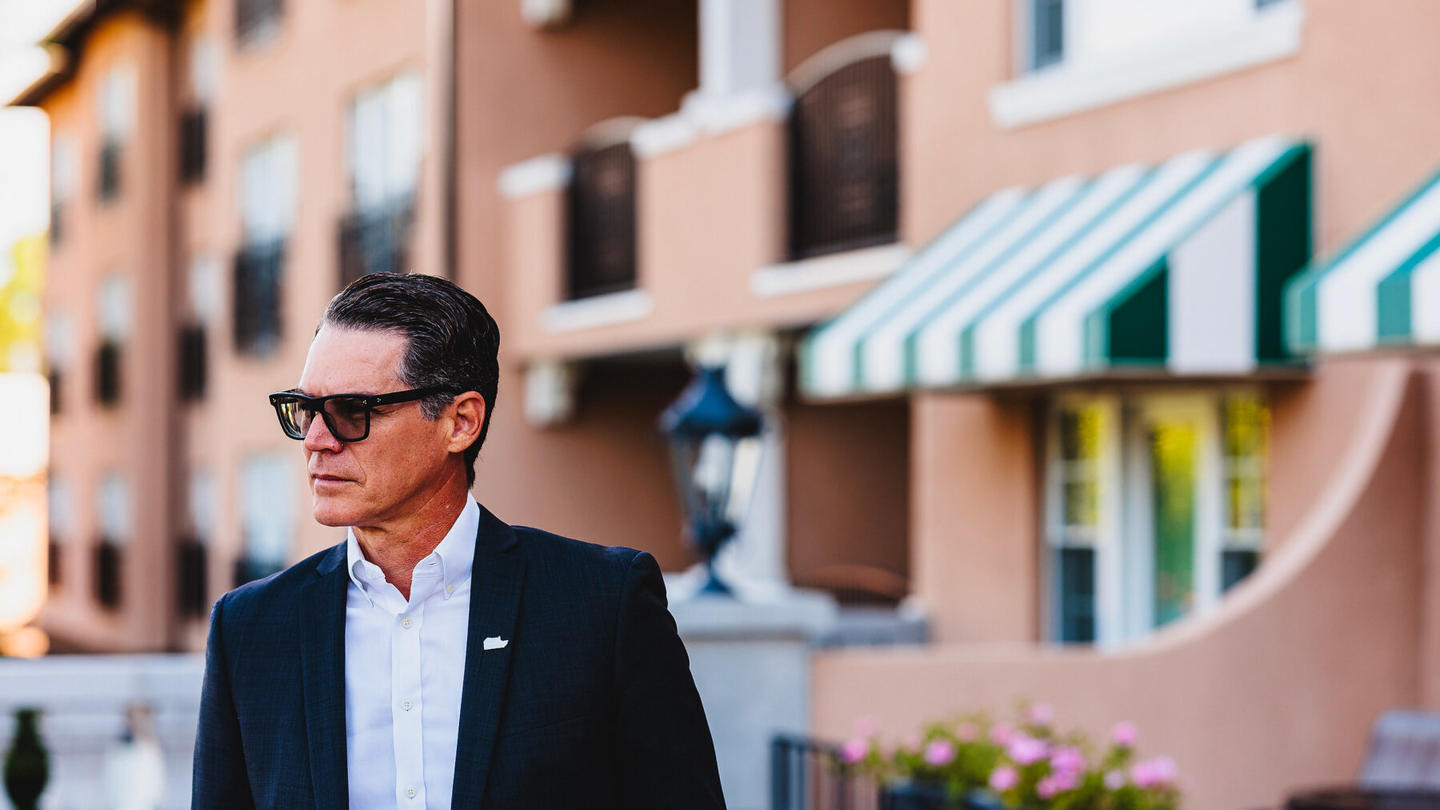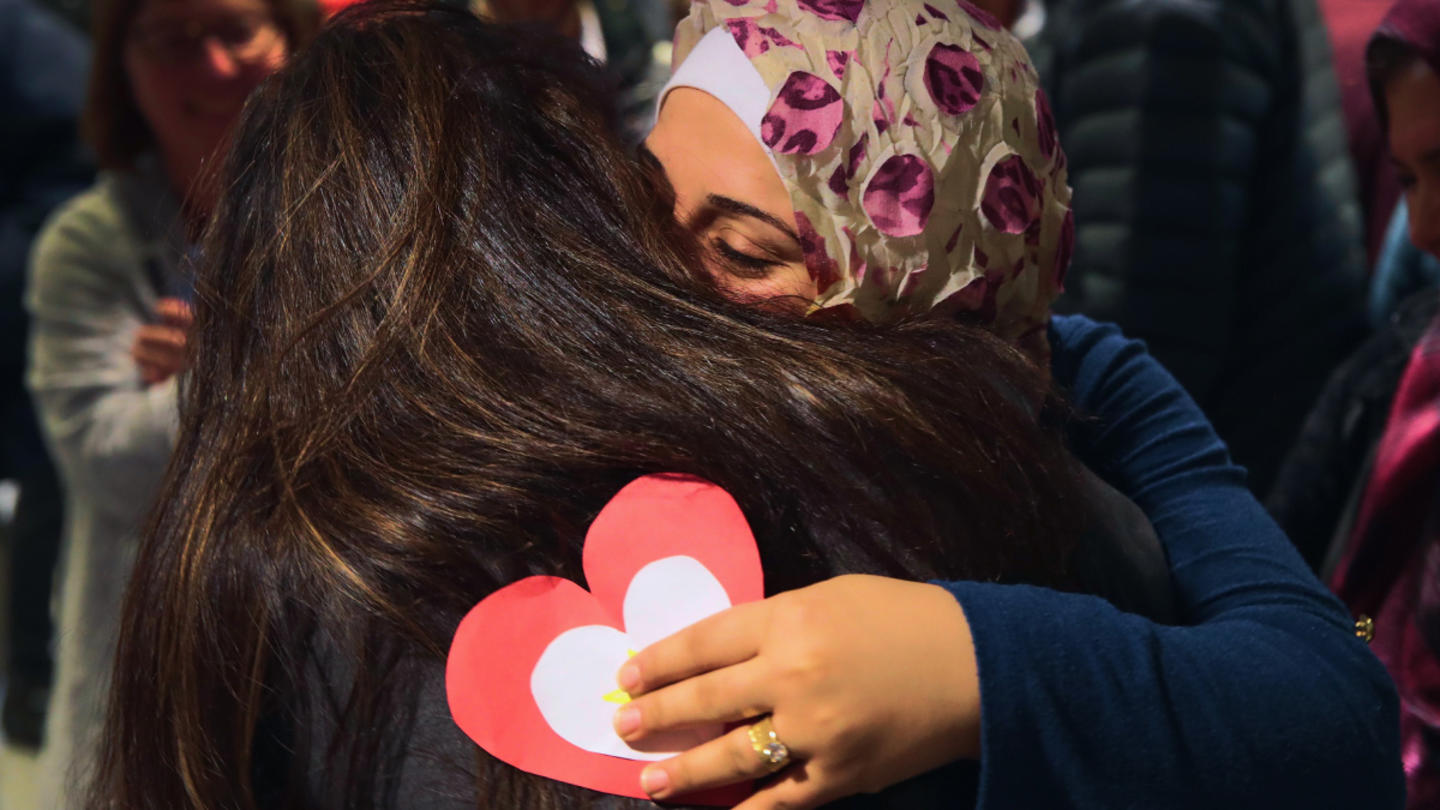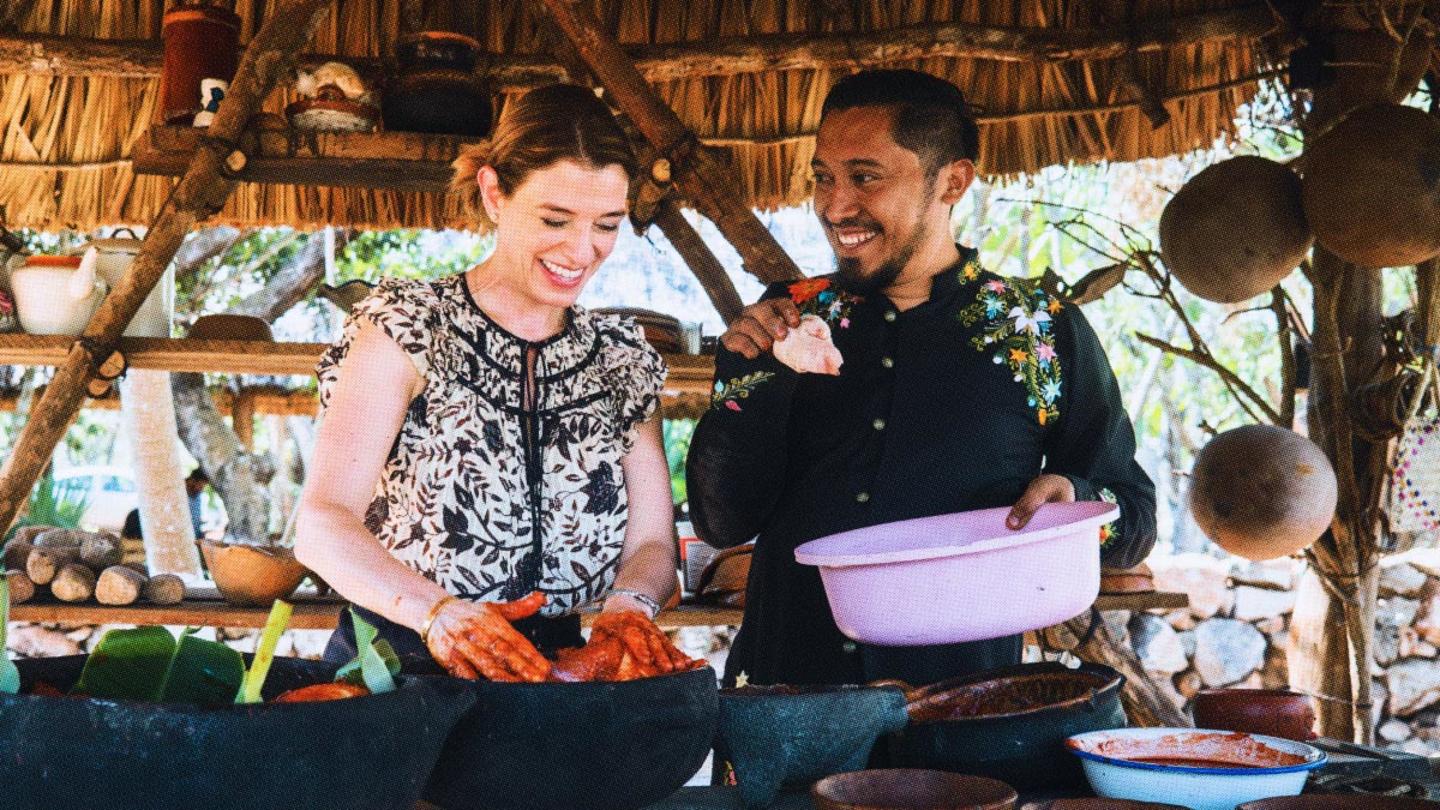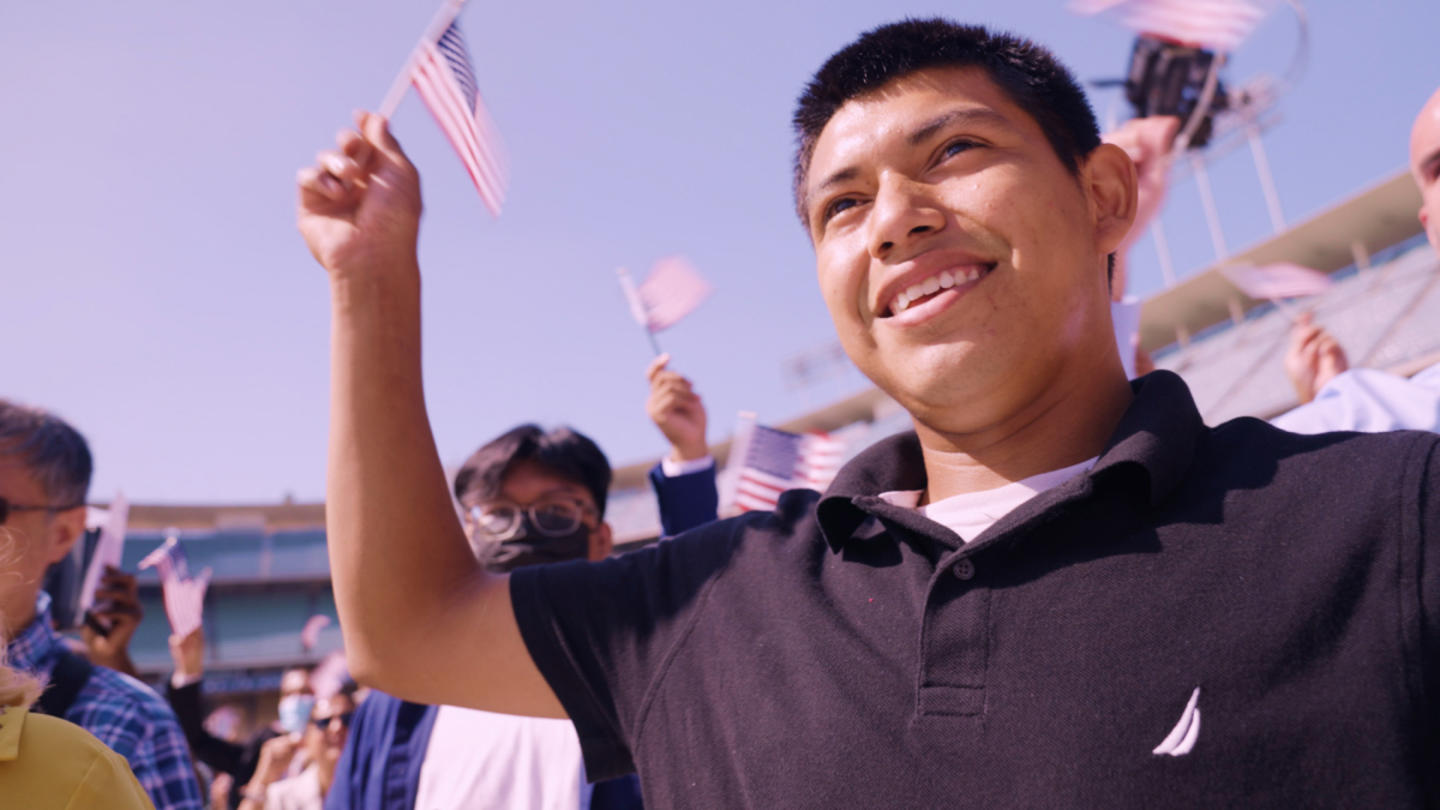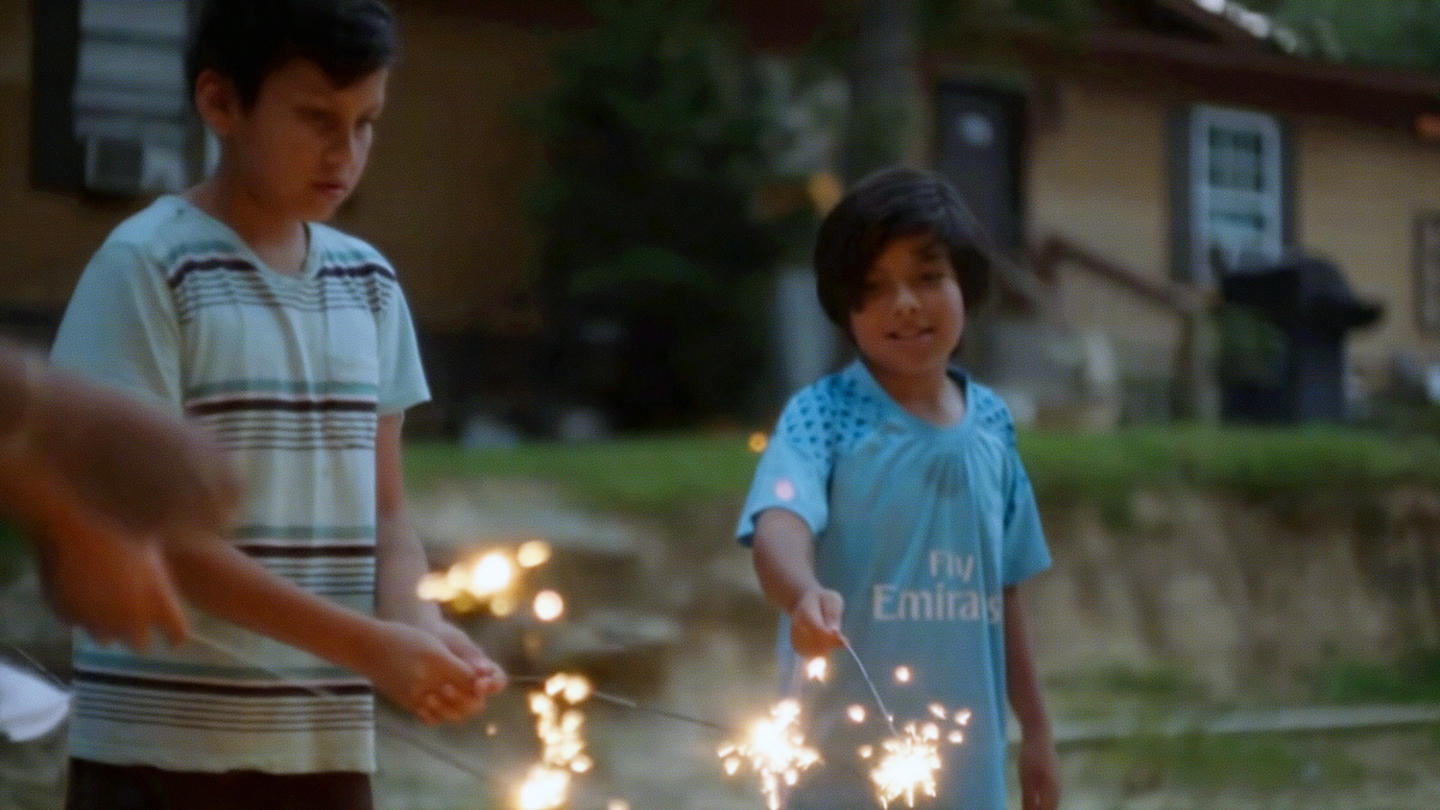Daniel Garza's life story is a classic example of how the Hispanic community can succeed in America with hard work.
Raised in a Mexican American family, he went from working with his parents in the fields of Central California to working in the White House's Office of Public Liaison. After his time at 1600 Pennsylvania Ave., he founded The LIBRE initiative, a national organization that advocates for economic freedom and opportunity to help Latinos unlock their potential.
Hispanics make up one of the most diverse and vital communities in America. Each of the 63 million Hispanics in the United States has a unique family background and a personal story on why they or their families came to America. Although their reasons differ, the same core values often repeat: Hard work and love of family combined can lead to a free and prosperous life in the United States.
For Daniel, those values are not a bumper sticker but a profound truth worth reflecting on as we celebrate National Hispanic Heritage Month. He and The LIBRE Initiative are fighting every day to ensure that the American promise that attracted so many people like his parents remains intact.
We discussed with Garza how his family's story of hard work and perseverance shaped his views of America, the current challenges the Hispanic community faces, and how The LIBRE Initiative is convincing Latinos that economic freedom is an ideal worth defending.
This conversation has been edited for length and clarity.
Stand Together: I'm sure many Hispanics can relate to your family's story: Your parents came to the United States from Mexico with only a fourth-grade education, and they worked tirelessly to achieve their dream. Can you share more about the challenges they faced and, more importantly, how they overcame them?
Garza: My parents' story is actually a very common one. It's a story of perseverance and overcoming barriers.
My parents came to the United States after they recently married, and they saw America as the promised land. Where they could achieve what you know they couldn't achieve back in Mexico, because of the opportunities that they saw. It was tough because they only had a fourth-grade education and were practically monolingual. They didn't have a driver's license. They didn't have a high school diploma, and they didn't know how to start a business.
What they could do was labor, and they went to work in the fields of California picking grapes, and that's where I was born, in the Central Valley of California. Then they saw better contract opportunities in the state of Washington. They moved up to the Yakima Valley of the state of Washington, and that's where I was mostly raised.
We did continue to migrate to the state of Nebraska hoeing sugar beets and then, you know, back to California and then return to Mexico during the winter months. But it was in the state of Washington where I was raised as a farmworker until I was 19 years of age.
My parents continue to work as farmworkers. My dad got better with his English, got his driver's license. He was able to overcome a lot of these barriers. There were more opportunities for him and my mother and our family to the point where he took his savings and risked them in a small business, a small hotel, in the city of Toppenish, Washington.
It was after that when it started making money. Dad had made this risk and we were on our way up. More opportunities opened up and we were fortunate that we had achieved the American dream in a very real way.
How did their story shape your idea of what America is and what America means for you?
America is that country where anybody from anywhere with nothing can achieve anything, and it has to continue to be that country. This country has fulfilled more dreams and more aspirations than any other country in the history of the world. This happens because of our economic system, because people are free to innovate, to launch a business, to create wealth and pass on that wealth to others.
My dad taught me early on that it is true that money doesn't make you happy, but it is through the sufficiency of capital that one can advance entrepreneurial efforts, charitable efforts, even evangelistic efforts. There is no question that you can rise in America by being rewarded for your hard work in producing a service or a product that people want, where you fulfill a demand. Anybody can do that.
But there's no question also that Latinos disproportionately suffer from barriers, certain barriers compared to other ethnicities or social groups. For example, 33% of us don't have a high school diploma, 30% of us only speak Spanish. In some states, 50% of us don't have a driver's license. These are all things that maybe other Americans take for granted, but they are major barriers to individual Latinos.
My parents' experience taught me that if we can erase those barriers immediately, then we can accelerate the process of people moving up the economic ladder quicker and allow them to achieve their own American dream as opposed to the dreams or the aspirations of a politician.
Hispanics are a growing demographic in the United States. The Census estimates 19% of Americans have some sort of Hispanic heritage or consider themselves Hispanic. What role are they playing in the American economy, despite the barriers they're facing?
What's fascinating is that we are interdependent with our fellow Americans. We are just as diverse as our fellow Americans, and just as skilled.
Sometimes the problem is those barriers that we face and how can we work together to remove those barriers and then position somebody in the marketplace so that the free market becomes real to them. Once that happens, they become champions of the free market, and that has been the whole concept behind The LIBRE initiative. What we've tried to do is to have people see the benefits of a free market and then advocate for that, because when you do that, the opportunities open.
It's critical that Latinos in America take ownership of America, but also take ownership in the foundational principles that were established in the founding charters of America. Because that is the reason why so many people gravitate towards America, the appeal of this country is that you are going to be free to innovate, to launch a business of your choosing, and you would have an equal playing field.
That's easy to say. But of course, when you're facing these barriers, the concept of equal opportunity gets a little hazy.
So, what can we do as partners to make sure that people do have an equal opportunity at a shot in the marketplace? I think that's why it's just so important that first we work to remove barriers, then engage those same folks in the defense of those founding principles. Then watch them go. Watch them create and innovate, creating wealth for themselves and creating wealth for others.
That's exactly what the Latino community has done. It is a major cog in the American economy in the production of products and services that meet demand, improving their life and the quality of life of others.
You've said that your parents saw America as the land of opportunity, where you can fulfill your dreams if you work hard. However, a recent poll from LIBRE shows that 80% of Latinos are concerned their kids will not have the same opportunities they had. Why is this happening? Are they right to be concerned?
I'll be honest. The fact that 80% of Latinos feel the future of their children is not going to be as bright as their current life is a sign of a loss of aspiration, a loss of hope.
I don't want to say they've given up on America, but Latinos are traditionally a very optimistic community. So, when you read something like this, it is a cause for concern.
Obviously, they are reflecting their current observations and their current experiences, which tell them that government has gotten too big.
What they're seeing there is cause for concern that, what was once this impression that America is a country of a free society, a free market, a free people, might be under threat. Those freedoms could be taken away real fast and economic opportunity can also be restricted by the same federal government when it imposes itself and chooses winners and losers in the marketplace.
What that tells me is we have a lot of work to do within the Latino community to engage them, to push back on all these policies and the long arm of government, to begin to reverse the centralization of so much power and money and control in the hands of politicians in D.C. and put it back in the hands of the people.
Explore the work Garza and The LIBRE Initiative are doing to help Hispanics achieve the American Dream.
Learn more about Stand Together's immigration efforts, and explore ways you can partner with us.
